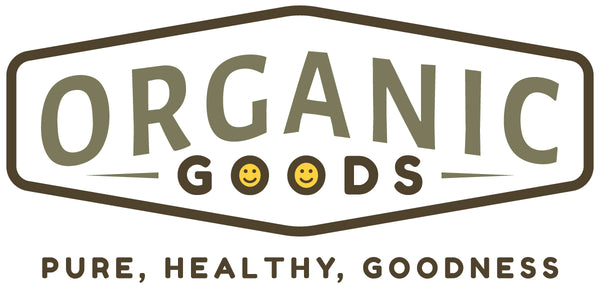
Natural Nourishment: Harnessing the Potential of Organic Ingredients for Optimal Health
Share
Table of Contents
- Introduction: The Power of Organic-Based Ingredients
- Organic-Based Ingredients: A Nutritional Powerhouse
- The Detoxifying Effect of Organic-Based Ingredients
- Organic-Based Ingredients and Disease Prevention
- Sustainability Factor of Organic-Based Ingredients
- Conclusion: Embracing Organic-Based Ingredients for Optimal Health
Introduction: The Power of Organic-Based Ingredients
The concept of organic-based ingredients is not a new phenomenon. It is rooted in the belief that consuming products, specifically those derived from nature, contributes significantly to our overall health and wellbeing. As we delve into this topic, it is essential to understand why organic-based ingredients are pivotal to our health. Firstly, they are devoid of harmful chemicals and toxins that are often found in non-organic products. Secondly, they are rich in nutrients, vitamins, and antioxidants, all of which are crucial for optimal health. Lastly, their natural origin ensures no adverse effects on our bodies, unlike artificial ingredients.
Organic-Based Ingredients: A Nutritional Powerhouse
Organic-based ingredients are often labeled as 'nutritional powerhouses' due to their high nutrient content. They are packed with essential vitamins, minerals, and antioxidants that our bodies need for proper functioning. For instance, organic fruits and vegetables are incredibly high in vitamin C, fiber, and numerous antioxidants. These nutrients boost our immune system, promote digestive health, and protect us from harmful free radicals. Furthermore, organic grains like quinoa and brown rice are excellent sources of dietary fiber and protein, which are vital for energy production and muscle growth, respectively.
The Detoxifying Effect of Organic-Based Ingredients
Another incredible benefit of organic-based ingredients is their detoxifying effect. Since these ingredients are devoid of harmful chemicals and toxins, they help cleanse our bodies from the inside out. Foods like organic beets, apples, and lemons are known for their potent detoxifying properties. They aid in liver detoxification, promote regular bowel movements, and help flush out toxins from the body. As a result, consuming these foods regularly can lead to improved digestion, increased energy levels, and better skin health, among other benefits.
Organic-Based Ingredients and Disease Prevention
Research has consistently shown that a diet rich in organic-based ingredients can significantly reduce the risk of various diseases. Organic foods are known to have higher levels of antioxidants, which are key players in fighting off free radicals that can lead to chronic diseases like cancer, heart disease, and diabetes. Moreover, they are also less likely to contain pesticide residues, which have been linked to numerous health issues, including developmental problems in children and hormone disruption in adults.
Sustainability Factor of Organic-Based Ingredients
Aside from the multitude of health benefits, organic-based ingredients also have a positive impact on the environment. Organic farming practices are designed to conserve water, reduce soil erosion, and decrease pollution. They also enhance soil fertility and promote biodiversity. Therefore, by choosing organic-based ingredients, we are not only nourishing our bodies but also contributing to the sustainability of our planet.
Conclusion: Embracing Organic-Based Ingredients for Optimal Health
Given the numerous health and environmental benefits, it is no surprise that more and more people are embracing organic-based ingredients. They offer a natural and wholesome way to nourish our bodies, detoxify our systems, and prevent diseases. Furthermore, they help us to take a step towards a more sustainable lifestyle. So, if you are looking to improve your health and wellbeing, consider incorporating more organic-based ingredients into your diet. Remember, your health is an investment, not an expense.
Moreover, choosing organic food is not just about personal health. By favoring organic produce, you are also supporting the health of the planet. Organic farming methods are designed to promote biodiversity, maintain ecological balance, and conserve natural resources. This sustainable form of agriculture avoids the use of synthetic pesticides and fertilizers, which can contaminate our water, soil, and air, leading to harmful environmental impacts. Therefore, your decision to go organic can contribute to the preservation of our ecosystems and biodiversity.
The organic food industry also promotes fair trade, ensuring that farmers and agricultural workers get a fair price for their produce. This helps in supporting the local economy and in promoting sustainable farming practices. Hence, your choice of organic food is a step towards sustainable consumption, reflecting your commitment to a healthier and more equitable world.
However, it's important to note that going organic doesn't mean you have to completely overhaul your diet overnight. Instead, consider making small, manageable changes to your eating habits over time. For instance, you could start by replacing one or two items in your grocery list with their organic counterparts. As you become more comfortable with these changes, you can gradually incorporate more organic foods into your diet.
In conclusion, adopting a diet rich in organic foods can yield significant benefits for your health and the environment. While it may require a bit of effort and might be more expensive initially, the long-term benefits far outweigh these initial challenges. After all, you are investing in a healthier future for yourself and for our planet.
